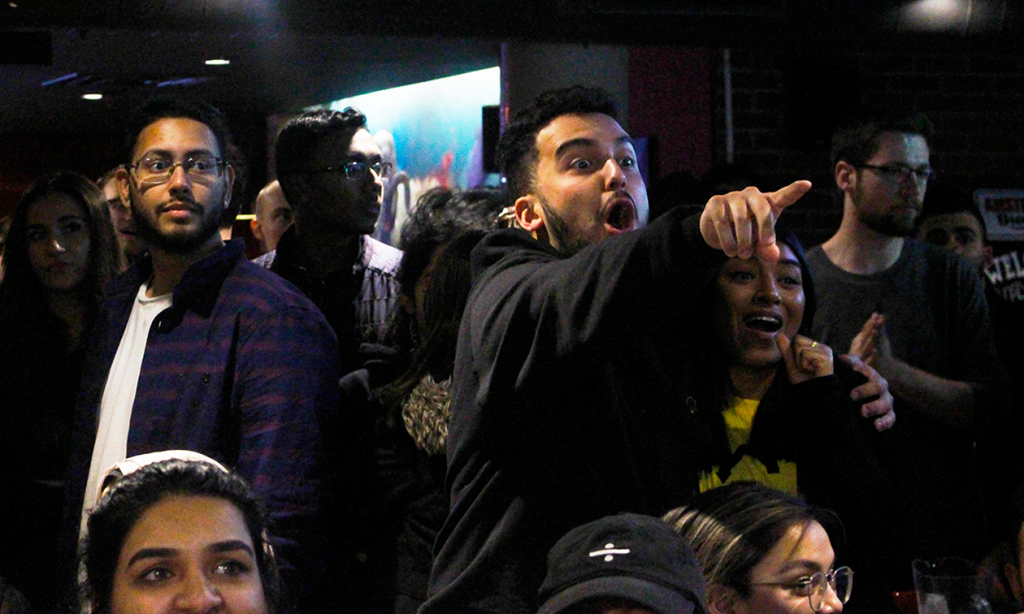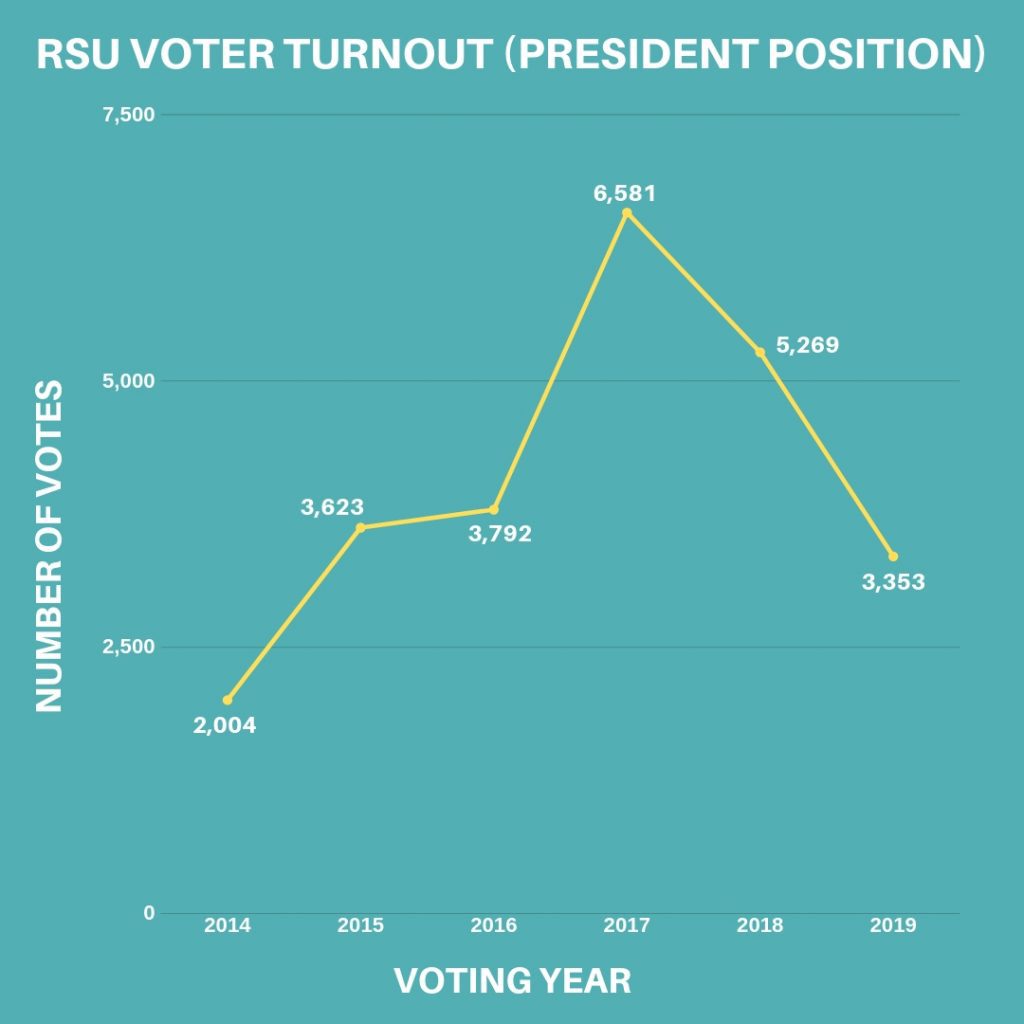
The Ryerson Students’ Union (RSU) elections saw the lowest voter turnout on campus since 2014. Some 3,353 total votes were cast for the position of president. The last time voter turnout was lower than this was in the 2014 RSU elections, with 2,004 votes cast in total for the presidential candidates.
Vanessa Henry, who was elected the new RSU president, received 1,202 of this year’s votes and beat out four other students. Her slate, Refresh, swept the executive committee, as well as the majority of seats on the board of directors.
For years, the presidential category has always had the most votes in elections, compared to the other executives, and is generally a reliable indicator of year-to-year voter turnout.
Henry said she believes the ongoing RSU credit card scandal likely caused the low voter turnout.
“I talked to a lot of students and they just did not trust the RSU anymore,” she said. “They think student leaders are more for themselves, instead of for them.”
In a poll conducted by the Ryerson School of Journalism from March 1 to 4, almost 49 per cent of students polled said that the credit card scandal had not affected their decision to vote. That’s compared to 35 per cent who said it had encouraged them to vote, and 15 per cent who said they wouldn’t be voting because of it.
In late January, publicly released credit card statements indicated suspicious purchases on cards owned by members of the RSU executive team. Purchases were made at local nightclubs, the Rec Room, the LCBO, and on other non-union related activities.

In 2014, there were 29,727 eligible voters. Students eligible to vote in the elections include full-time undergraduate students and full-time or part-time graduate students.
Statistics for how many students are on campus as of the 2018-19 school year are currently unavailable. Last year, less than 15 per cent of eligible voters participated in the elections. Ram Ganesh, the former RSU president who was recently impeached, received 3,373 votes to come into power. Between Ganesh, Nyaga and Rhino Party candidate Matthew Smith, 5,269 votes were cast for president.
With the exception of a 20 per cent dip in voting between 2017 and 2018, more students have been casting their vote in the elections since 2014. Most recently, 6,581 votes were placed for the six presidential candidates that ran in 2017 (the 2018 elections had three candidates).
Adam Asmar ran as president under the slate Inspire and came in second place with 898 votes. Asmar ran in the RSU elections last year for vice-president operations but was not elected. He said he found this year’s turnout disappointing.
He said he believed that the credit card scandal, as well as the provincial government’s proposed opt-out options for ancillary fees, was going to increase voter turnout because students would be more concerned in RSU affairs. But he said he’s not surprised by the actual turnout.
“I get it. People are tired. But it’s still disappointing to actually see it manifest itself into real life,” Asmar said.

